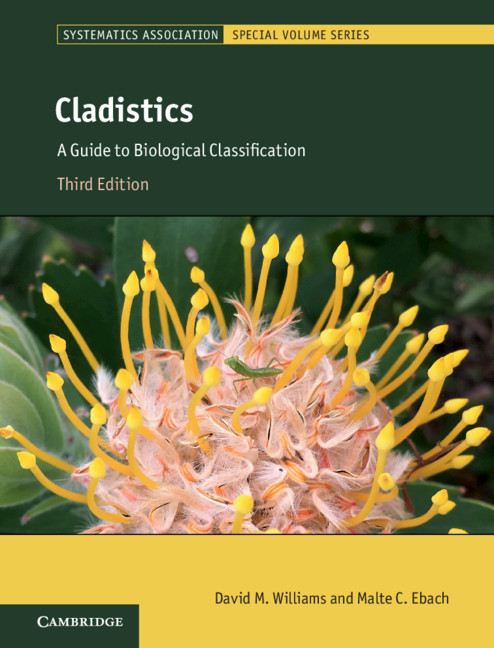The Future of Phylogenetic Systematics
Willi Hennig (1913–76), founder of phylogenetic systematics, revolutionised our understanding of the relationships among species and their natural classification. An expert on Diptera and fossil insects, Hennig's ideas were applicable to all organisms. He wrote about the science of taxonomy or systematics, refining and promoting discussion of the precise meaning of the term 'relationship', the nature of systematic evidence, and how those matters impinge on a precise understanding of monophyly, paraphyly, and polyphyly. Hennig's contributions are relevant today and are a platform for the future. This book focuses on the intellectual aspects of Hennig's work and gives dimension to the future of the subject in relation to Hennig's foundational contributions to the field of phylogenetic systematics. Suitable for graduate students and academic researchers, this book will also appeal to philosophers and historians interested in the legacy of Willi Hennig.
- Includes several chapters on the history of phylogenetic systems which will act as a platform for the study of this significant change in taxonomic and evolutionary practice
- Covers a wide spectrum of topics including practical issues in biology, which invests renewed interest in the development of comparative biology
- Includes chapters on areas of progress which identify the need for future developmental research and investigative study into these subjects
Product details
July 2016Hardback
9781107117648
508 pages
252 × 194 × 25 mm
1.23kg
75 b/w illus. 1 table
Available
Table of Contents
- List of contributors
- Foreword Norman I. Platnick
- Introduction David Williams, Quentin Wheeler and Michael Schmitt
- 1. Mission impossible: the childhood and youth of Willi Hennig Willi E. R. Xylander
- 2. Willi Hennig: a shy man behind a scientific revolution Michael Schmitt
- 3. Willi Hennig's legacy in the Nordic countries Ole Seberg, Torbjørn Ekrem, Jaakko Hyvönen and Per Sundberg
- 4. Hennigian systematics in France, a historical approach with a glimpse of sociology Pascal Tassy
- 5. Are we all cladists? Andrew V. Z. Brower
- 6. How much of Hennig is in present-day cladistics? Michael Schmitt
- 7. The evolution of Willi Hennig's phylogenetic considerations Rainer Willmann
- 8. What we all learned from Hennig Gareth Nelson
- 9. Semaphoronts: 'the elements of biological systematics' Leandro C. S. Assis
- 10. Why should cladograms be dichotomous? René Zaragüeta Bagils and Sophie Pécaud
- 11. Hennig's auxiliary principle and reciprocal illumination revisited Randall D. Mooi and Anthony C. Gill
- 12. Dispersalism and neodispersalism Malte C. Ebach and David M. Williams
- 13. Molecular data in systematics: a promise fulfilled, a future beckoning Ward C. Wheeler and Gonzalo Giribet
- 14. Hennig, Løvtrup, evolution and biology Robin Bruce
- 15. Willi Hennig as Philosopher Olivier Reippel
- 16. Hennig and hierarchies Charissa S. Varma
- 17. Chain, tree, and network: the development of phylogenetic systematics in the context of genealogical visualization and information graphics Nobuhiro Minaka
- 18. The relational view of phylogenetic hypotheses and what it tells us on the phylogeny/classification relation problem Stéphane Prin
- 19. This struggle for survival: systematic biology and institutional leadership Quentin Wheeler
- Index.










